Reading a loved one’s will is a difficult time. Realizing that there was undue influence can be even more painful. What to do if you are in this situation? In this article, we tell you all the details of what undue influence is, how to recognize it and what to do if you are facing it.
At Ortiz & Ortiz we have an experienced New York wills attorney who has been advising and serving the community for over 30 years. We serve in English and Spanish in our offices located in Queens and Manhattan. However, we can assist you online if you are located in another New York City borough. Contact us and let us know about your case today!
Table of Contents
- Elements of undue influence in New York wills in 2023
- Elements of undue influence in New York
- When is undue influence noted in a will?
- How do I prove undue influence in the will of a loved one or family member?
- Experienced New York Undue Influence Lawyer
Elements Of Undue Influence In New York Wills In 2023
If upon the death of a loved one you read a will that does not appear to be written by the decedent, you may be facing undue influence on that document. Unfortunately, that person who was influenced can no longer defend themselves or tell their truth, so it will have to be pointed out in a court of law, and the invalidity of the document sought. How to do this and what is the procedure? Next, we will see each of the steps to follow.
What Is A Will?
We all know roughly what a testament is. It is a document in which a person or testator indicates how that person or testator wants their estate to be managed and distributed after death. The person who will be in charge of administering, distributing, and fulfilling the last will of the deceased is the executor of the estate, who will be named in the will itself.
Many times it happens that there is a legally valid will, but the relatives do not believe that it was executed by the deceased. In this case, it is said that there may be undue influence, mistake, or fraud.
Note: Review the difference between the executor of the estate and the administrator of the estate, as well as the difference between the executor and the trustee. All of these figures must fulfill the fiduciary duty. Also, if you are considering leaving a will and appointing an executor, learn about the executor appointment letter and whether the executor must show accounting to the beneficiaries of the will.
What Is Undue Influence?
Undue influence is one of the most common grounds for claiming that a will should be invalid. As the name implies, undue influence refers to the fact that there was an undue influence at the time the testator wrote the will.
Although the testator has the right to leave property to any person or entity he chooses, there may be evidence that the will or trust left behind does not reflect the true intent of the decedent. When this happens a probate judge may refuse to execute the will.
Note that undue influence is not a beneficiary who is jealous or envious because the beneficiary did not get all the assets they expected or who argues that they deserve more or need more. Undue influence is when a person restricts the testator’s free will.
Step By Step Undue Influence:
- It is generally alleged that the decedent was isolated by a caregiver for a period prior to death.
- Given that situation, the decedent’s loved ones question the relationship between the decedent and the caregiver.
- Specifically, they question the influence that caregiver had on the decedent during the time that the will in question was drafted and executed.
- When speaking of a caregiver, it may be a paid caregiver, thus being a relative stranger, or it could be a family member.
- The modus operandi of the person exercising influence over the deceased person or testator is that he slowly and methodically separates the individual from their nuclear family.
- They begin screening phone calls, avoiding in-person visits.
- Once the person passes away, the family realizes that drastic changes were made to the will just weeks before death.
- And evidently these drastic changes result in a significant portion or all of their estate being left to that caregiver.
- Rather, the new will as amended before their death is diametrically opposed to what they stated in their first will.
- This situation raises red flags for family members who realize that there was undue influence on the decedent’s will.
Note: Other forms of estate planning you may find are revocable living trusts and irrevocable living trusts, as well as power of attorney.
Who Exerts Undue Influence Over The Testator?
Undue influence is when a person forces or coerces the testator to make changes to the will as a result of undue pressure on the testator. There are several people who can exert undue pressure. There is really no recipe for who that person is, but commonly it is:
- A relative who wants to keep the entire estate of the decedent.
- A friend.
- A trusted advisor, may be someone who helped the testator manage the accounting and financial affairs and therefore has access to and knowledge of the assets held by the testator.
- A health care worker. Many times when people reach a certain age they hire or have a caregiver or someone to take care of their health. Sometimes this person might take advantage of their position and inquire or learn about the decedent’s estate.
Elements Of Undue Influence In New York
When the will is read and those present are puzzled by what it says, it is very common for a sense of anger and injustice to predominate. It may be a family member, a friend or someone close to the deceased who realizes that there were drastic changes in the will weeks before the decedent’s death. In these cases, it is advisable to remain calm and seek the advice of experienced will attorneys who can help you prove undue influence.
In order to point out that there is undue influence and then prove it, some elements must be taken into account. These are motive, opportunity, and the actual exercise of undue influence. We will look at each of these below.
Motive
Under New York law, in order to prove undue influence, it must be proven that there is a motive. That is, whoever exerted the pressure on the testator had a reason. Generally, the motive is financial gain and this is reflected in the final will.
The motive can be determined by analyzing the size of the testator’s estate and analyzing what the person accused of undue influence is inheriting.
Opportunity
For undue influence to occur there must not only be a motive, but also an opportunity. Opportunity refers to the fact that the influencer must have access to the testator, to be close to them, and, therefore, to information about their estate and the assets they own.
Opportunity may occur because the testator was also susceptible to undue influence. Opportunity can occur because of:
- A weakened mental state of the testator.
- Old age.
- Illness.
- Isolation or depression.
- A confidential relationship with the testator where the latter placed full confidence in the undue influencer.
Actual Exercise Of Undue Influence
This is the third point that must be proven in order to prove undue influence and thus invalidate the will. Even proving the actual exercise of undue influence can be determinative since it is not enough to prove motive and opportunity.
What accounts for the actual exercise of undue influence is that the influencer has a hand in the preparation and execution of the will. This is in the suggestions of changes to the will and then keeping the originals of the will after execution by the testator.
When Is Undue Influence Noted In A Will?
The death of a person can generate great commotion among family and friends. However, immediately the formalities and what is called the probate process begin. This can be testate or intestate. Review our article on intestate succession laws in New York. Please note that the probate procedure may vary from state to state.
New York Probate Steps:
- File the decedent’s will with the probate court for probate. In this section, the authenticity of the decedent’s last will must be proven. Once it is authenticated, all the instructions therein will be taken into account to move forward with the distribution of assets and property.
- Notify beneficiaries and creditors.
- Pay the debts and taxes that correspond.
- It will be the personal representative appointed by the testator who will administer the assets and distribute them among the beneficiaries according to the instructions of the will.
When the will is submitted to probate and the steps described above are carried out, any of the “interested parties” has the right to contest the validity of the will.
If the challenge to the will is successful and the will submitted to probate is declared invalid, New York’s intestate succession laws will be used to distribute the decedent’s estate.
In addition to undue influence, other ways in which a will could be invalidated include:
- Improper execution
- Revocation
- Incapacitation
- Fraud
If you would like to delve deeper into how to contest a will in New York, read our full article on Steps to Contest a Will.
How Do I Prove Undue Influence In The Will Of A Loved One Or Family Member?
If you are being confronted with the will of a loved one or family member and believe there is undue influence, you have the right to contest that will. In other words, make that will invalid. How do you prove it?
- First, you should be aware that undue influence is rarely proven by direct evidence.
- In general, undue influence responds to circumstantial cases. It is proven, most often, by the testimony of friends and family, the attorney drafting the will, medical records, and experts.
- In conclusion, the whole picture must be pieced together and the entire situation must be relieved through testimony to prove undue influence.
In order to carry out this process of proving undue influence, it is important to seek the advice of an experienced probate attorney who can review the facts and circumstances surrounding the execution of the will. Only then will that attorney be able to provide you with an accurate opinion as to your chances of success.
In New York State case law, a contestant must prove undue influence at the time the will was executed. To do so, you must demonstrate these three points:
- Existence and exercise of undue influence on the testator.
- That there was an effective operation of undue influence such as to cause the testator to change their mind at the time of the execution of the will. That is to say, there was an influence exercised as moral coercion that in some way restricted independent action and destroyed free will.
- Execution of a will that, but for undue influence, would not have occurred.
Some Signs Of Undue Influence That The New York Court Might Consider As Evidence:
- Presence of the alleged manipulator or influencer at the execution of the will.
- Presence of the alleged manipulator or influencer on those occasions when the testator expressed a desire to make a will.
- The alleged manipulator or influencer is the one who recommended the lawyer who ended up writing the will. It will also be considered whether said lawyer had a prior relationship with the alleged influencer.
- That the manipulator or influencer knew the contents of the will prior to its Execution.
- The fact that the manipulator or influencer gave instructions on the preparation and writing of the will to the attorney who drafted it.
- That the alleged manipulator or influencer has secured witnesses. An even more potent sign is if neither the testator nor their relatives knew of such witnesses.
- If the person believed to have manipulated and unduly influenced the testator has custody of the will after execution, that person may also be a suspect.
- The influencer does not get along with the testator’s family. They constantly criticize them. In that vein, it may be important to the case that the court realized that the alleged manipulator had isolated the testator from their family.
- Deterioration of the testator’s physical or mental health.
- Vulnerable testator who is dependent on the alleged manipulator or influencer.
- The reasonableness of the will. This means that if the bequest makes little sense objectively, then the surrogate court is more likely to find undue influence or some other type of irregularity. Although it is worth mentioning that wills can indeed be changed over the years. However, the relationship of the testator to the beneficiaries may not be very different from one will to the next.
- The testator acted in secret. When no one is aware of the changes in the will, it is suspicious. Neither the attorney nor the executor nor the beneficiaries knows about the changes.
Who Can Claim Undue Influence On A Will?
Not everyone has the right to contest a will by claiming that undue influence was involved in its execution. Under New York State law, only those who have some legal standing with respect to the document have a legal right to challenge a will. That is, those who stand to gain or lose financially depend on the outcome of the invalidity of the last will and testament.
Those who can claim undue influence on a will are:
- Those beneficiaries named in the current will, for example, the same one that is being pointed out to have been drafted under undue influence.
- Beneficiaries of the prior will who may or may not have been left out of the will with undue influence.
- Intestate heirs.
Consequences Of A Will That Has Been Unduly Influenced
The first consequence of a will that was unduly influenced is that the entire probate process will be much slower than expected. It can take several months from the time someone believes that the will has been unduly influenced until it is declared invalid.
In the event that the document is declared invalid by the probate court, then the previous will will be searched. If there is no document prior to the one that was declared invalid, the New York intestate succession rules will be followed. This means that the relatives or immediate family members of the decedent are the ones who will be entitled to their estate. There is an order of priority for this. First on the list is the surviving spouse and children, then parents followed by grandchildren and so on.
Note: You may also be interested in our articles on If a person dies who pays the debts, what happens to Life Insurance without a beneficiary, What happens to a joint account with a deceased parent and on Spousal Right of election in New York.
Experienced New York Undue Influence Lawyer
Realizing that a family member or loved one’s will was unduly influenced can leave you helpless and not knowing what to do. Undue influence in a will is generally not proven by direct evidence. For this reason, it will be vital to rely on testimonies from family members and acquaintances of the deceased, as well as medical examinations and other documents that can recreate the scenario in which the alleged undue influence was generated.
Throughout this process it will be vital to have an experienced New York probate lawyer who can accompany and advise you and your family. Our attorneys will be able to assist you in:
- Reviewing the will and pointing out if there is evidence of undue influence.
- Putting together a general picture of where undue influence may have occurred. Along these lines, help you obtain testimony and other documents that could be used as evidence to prove that undue influence was involved and that the decedent did not act freely when modifying the will.
- Accompany you and your family throughout this process.
- Recommending you what steps to take and analyzing what happens when there is no previous will to turn to.
Contact us today to analyze your case and start working together.



